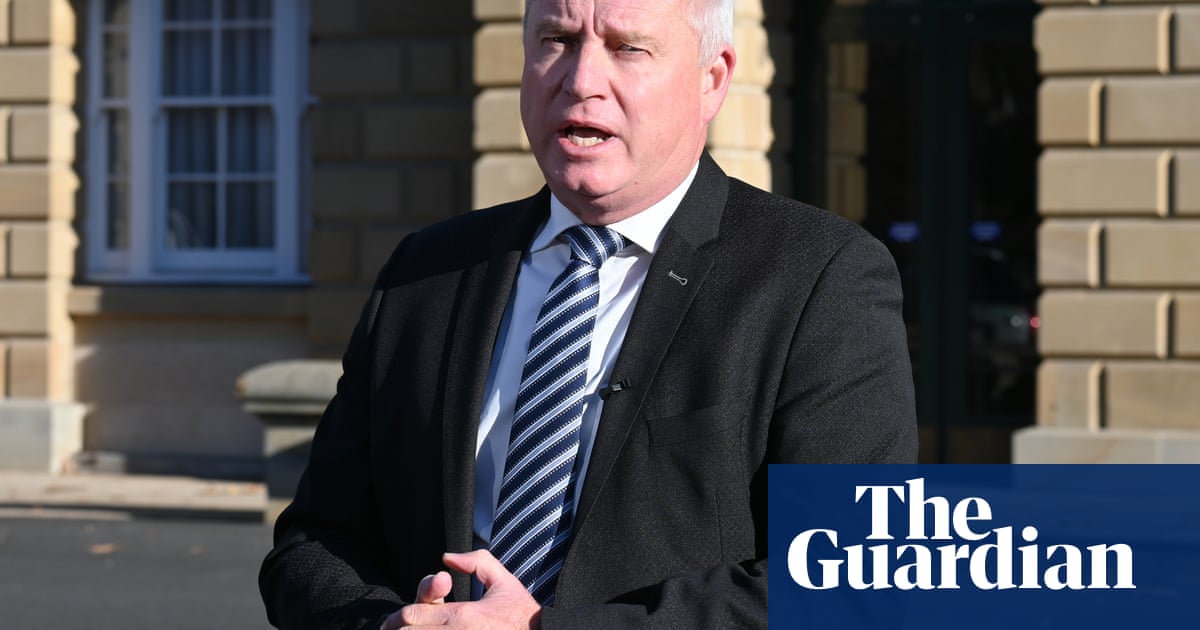After a week of drama, the political future ofTasmaniacould look starkly different by the end of today. The state may be about to get its fourth election in seven years.
But there are a couple of alternatives to consider. Let’s walk through them.
On Tuesday last week, the state opposition leader, Dean Winter, surprised many bymoving a motion of no confidence in the Liberal premier, Jeremy Rockliff. The motion was tabled at the end of a budget supply speech.
The motion wasostensibly about the budget, arguing Rockliff had wrecked the state’s finances, planned to sell public assets and had mismanageda crucial ferries project.
The Greens supported Labor’s motion, but unsuccessfully pushed for it to also touch on the government’s response to gambling harm and theproposed AFL stadium.
After days of debate, the motion succeeded by a razor-thin margin: 18-17.
This appears the most likely outcome.
After the vote on Thursday, Rockliff said he planned to visit the state’s governor on Tuesday to request a statewide poll. But this won’t happen until some important business is taken care of. State parliament will resume on Tuesday morning to pass routine supply bills that are essential to keep government departments running.
If an election is called later in the day, then Rockliff would lead the Liberal party. The date of any potential election is not yet known.
Potentially. The governor, Barbara Baker, is not obliged to accept Rockliff’s request. She could adopt two alternatives.
Baker could instead request the Liberal party room elect a different leader to avoid an election just 15 months after the last state poll. On Monday, some Liberal party figures werequoted in the Mercurycalling for Rockliff to resign and be replaced by the former senator Eric Abetz. Guy Barnett and Michael Ferguson have also beentouted as potential leaders. But so far, Rockliff has refused to resign and the party room has expressed its support for him.
Baker could also ask the Labor opposition to test its numbers and seek support from a collection of minor parties and independents. Theoretically, this is possible. At the last election, Tasmanians elected 14 Liberals, 10 Labor, five Greens, three MPs from the Jacqui Lambie Network (JLN) and three independents.Some call this a rainbow parliament, others call it chaos. But Winter has repeatedly ruled out a power-sharing arrangements with the Greens, despite the minor party being a willing participant. So this appears unlikely.
The AFL’s proposed stadium is a controversial issue in Tasmania but both the Liberals and Labor remain committed to its construction.
One of the conditions set by the AFL for a new team in Tasmania was a roofed stadium, but the expensive project – set to cost about $1bn – faces opposition from some in Tasmania, who instead have called for the money to be spent elsewhere.
If an election is called, the stadium would be central issue along with the state’s finances and help shape the outcome of the next parliament.
An election is likely to delay parliamentary approvals for the stadium for several months. These delays could cost the state government if approval is ultimately granted and the Tasmanian team is forced to play at Bellerive Oval, as it would need to pay fines to the AFL.
